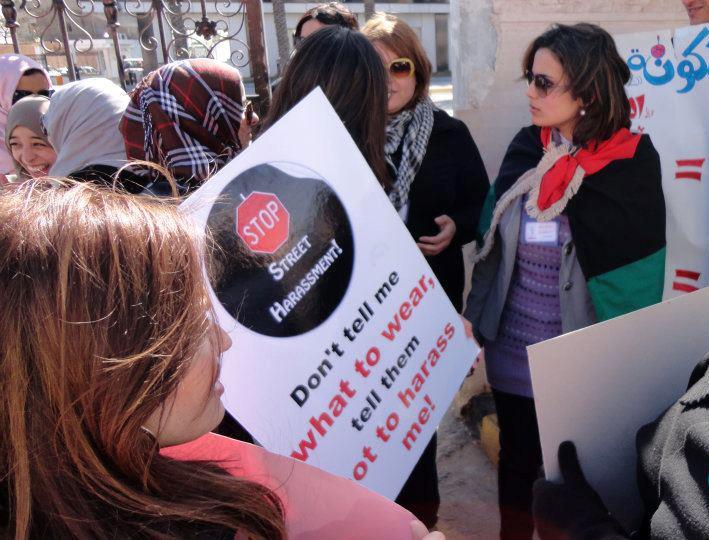
Emblematic Decision on Gender Violence Against a Libyan Human Rights Defender
Libya violated the rights of Libyan human rights defender Magdulein Abaida by failing to investigate her arbitrary arrest and torture, the UN body of experts that monitors implementation of the main global treaty on women’s rights has found.
The decision, issued today, is emblematic in two ways: it is the first decision that the UN Committee on the Elimination of Discrimination against Women (CEDAW) has made on gender violence against a human rights defender, as well as the first one made in response to an individual complaint from the Middle East and North Africa region.
The Committee considered the complaint brought by REDRESS on behalf of Magdulein, who was forced to flee Libya after being harassed, tortured and forced to close down her women’s rights organisation, Hakki (“My Right”).
Magdulein supported the revolution that ousted former Libyan leader Muammar Gaddafi in 2011, and was an active campaigner for women’s rights in Libya. She particularly focused on campaigning for equality to be written into the new Libyan Constitution as it was being drafted in the wake of Gaddafi’s fall.
On 9 August 2012, she was abducted from her hotel room in the Libyan seaport city of Benghazi by five men belonging to the Martyrs of 17 February Brigade, a militia group affiliated with the Libyan government. During the next five days, she was subjected to harassment, insults and physical beatings at different compounds ran by the government and this militia. She was beaten with a gun and received death threats.
After her release, Magdulein began to receive hate mail and death threats telling her that if she was seen out in public she would be killed and was unable to resume her human rights work. With her life in danger, she was forced to flee Libya in 2021 and sought asylum in the United Kingdom.
In 2013, REDRESS filed a complaint to the Libyan Prosecutor General on behalf of Magdulein, urging him to investigate the allegations, but an investigation was never initiated.
“The CEDAW decision has left me speechless. I’m so proud to have played a part in setting a legal precedent for women and human rights defenders in the MENA region. I’d like to extend my heartfelt gratitude to the extraordinary legal team at REDRESS and Jurgen Schurr for working so hard over the past few years to achieve this landmark outcome.” — Magdulein Abaida
In her complaint to CEDAW, Magdulein sought a formal apology from Libya, but also wider institutional reforms to prevent future violations against women’s rights. In its decision, CEDAW has requested Libya to investigate the events in order to prosecute those responsible, and provide her with reparations, including compensation. CEDAW has also urged Libya to adopt wide-ranging measures to address gender-based violence and discrimination against women committed by public officials and non-State actors in Libya.
“Setting a legal precedent is such an extraordinary achievement. This is the first decision CEDAW has adopted in response to an individual complaint brought against a country from the MENA region and the first case in which the Committee found a violation of the rights of a human rights defender. It’s such a huge relief to have received this type of recognition of the injustices I suffered in 2012. Though I’ve not yet digested it, it should finally offer some hope of closure, after so many years.” — Magdulein Abaida
CEDAW has also affirmed that a gender-sensitive approach is needed to assess claims of torture, and that acts of torture which are gender-specific or perpetrated against a person on the basis of sex must be considered as discriminatory torture.
“This is an emblematic decision that reaffirms the right of Magdulein and all other women in Libya to participate as equal and active members of society in all spheres of life, including in the defence of human rights.” — Rupert Skilbeck, Director of REDRESS
For more information, please contact: Eva Sanchis, REDRESS Head of Communications, on [email protected]; +44 (0)207 793 1777 or +44 07857110076.
Notes to editors
